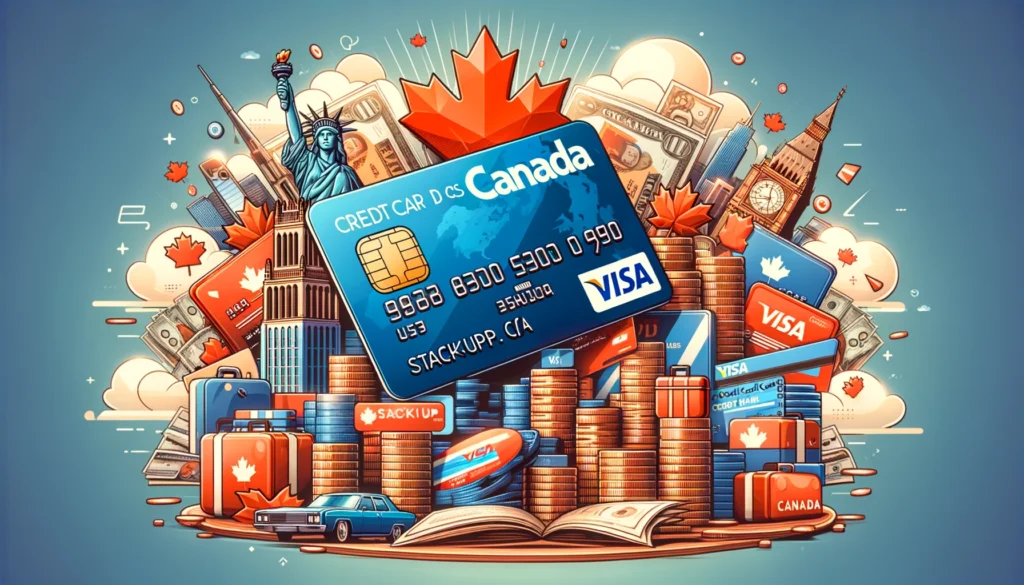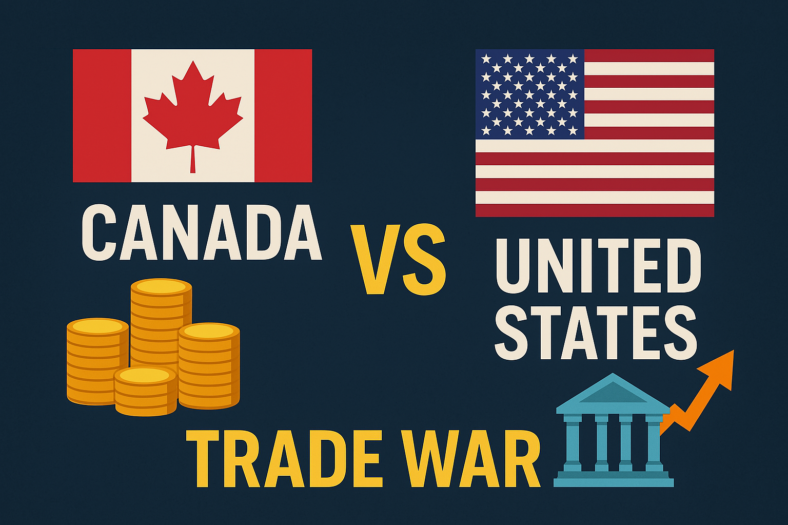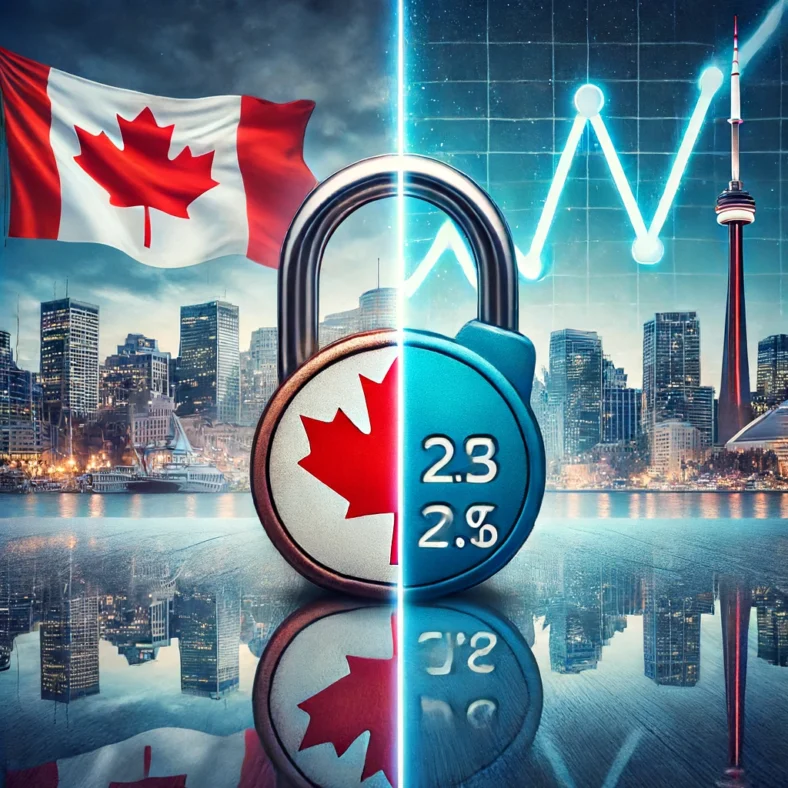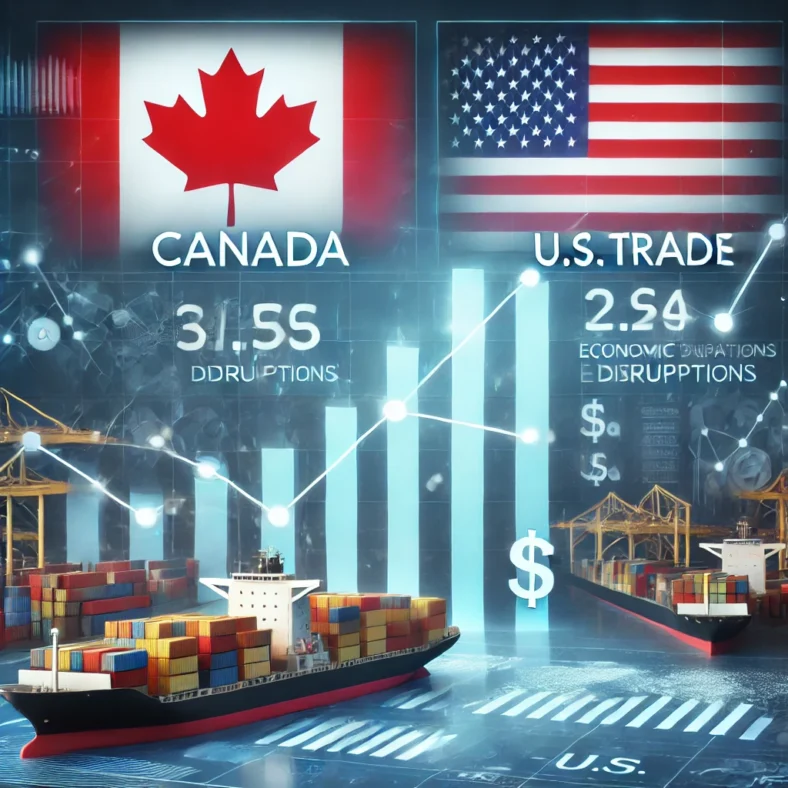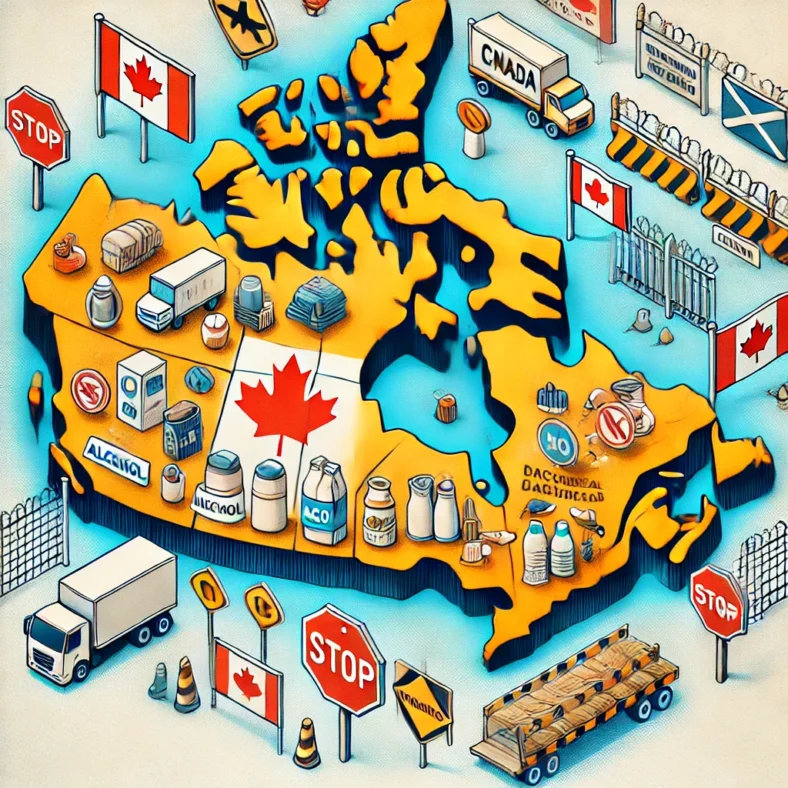Best Visa Credit Cards in Canada: Editorial Picks
| Compare | Ratestead Rating | Annual Fee | Annual Rewards | Welcome Bonus | Learn More |
|---|
| APPLY NOW | /10 |
As one of the most widely accepted payment networks in the country, Visa offers a diverse range of credit cards tailored to meet the unique needs and preferences of Canadian consumers. In this comprehensive guide, we’ll explore the top Visa credit cards available in Canada, highlighting their key features, benefits, and rewards programs. Whether you’re seeking cashback rewards, travel perks, low-interest rates, or premium benefits, we’ve got you covered. Join us as we delve into the world of Visa credit cards and help you find the perfect card to enhance your financial journey in Canada.
What are Visa credit cards?
Visa credit cards in Canada are payment cards issued by various financial institutions that are affiliated with Visa, one of the leading global payment networks. Visa credit cards offer users a convenient and widely accepted method of making purchases, both domestically and internationally. These cards come with a unique 16-digit card number, an expiration date, and a security code, allowing cardholders to make secure transactions in stores, online, and through other payment channels.
Visa credit cards provide users with a line of credit, allowing them to borrow money from the issuing institution up to a predetermined credit limit. Cardholders can make purchases using their Visa credit cards and then repay the borrowed amount over time, usually with interest, based on the terms and conditions of the specific card and issuer.
What sets Visa credit cards apart is their acceptance network, which is one of the largest and most extensive in the world. Visa cards are accepted by millions of merchants globally, including restaurants, retail stores, hotels, and online platforms, making them a versatile and widely accessible payment option for consumers.
Furthermore, Visa credit cards in Canada often come with additional features and benefits such as rewards programs, cashback incentives, travel insurance, extended warranty protection, and fraud prevention measures. These perks are designed to enhance the cardholder’s experience and provide added value for their financial transactions.
Overall, Visa credit cards in Canada offer individuals a secure, convenient, and widely accepted method of payment, along with various benefits and features that cater to different needs and preferences.
Common features of the best Visa credit cards in Canada
The best Visa credit cards in Canada often share several common features that make them stand out from the rest. Here are some key features to look for when exploring the top Visa credit cards:
Generous Rewards Programs: The best Visa credit cards typically offer robust rewards programs that allow cardholders to earn points, cashback, or miles for their spending. These rewards can be redeemed for travel, merchandise, statement credits, or other valuable benefits.
Welcome Bonuses: Many top Visa credit cards entice new cardholders with attractive welcome bonuses. These bonuses may include bonus points, cashback, or travel rewards after meeting specific spending requirements within a designated timeframe.
Travel Benefits: Premium Visa credit cards often provide excellent travel perks such as airport lounge access, travel insurance, concierge services, and special discounts on flights, hotels, and car rentals. These benefits are especially valuable for frequent travelers.
Purchase Protection: The best Visa credit cards in Canada offer purchase protection, which safeguards cardholders against fraudulent transactions, unauthorized charges, and defective or damaged purchases. Some cards also provide extended warranty protection, adding an extra layer of security to your purchases.
Low or Introductory Interest Rates: For individuals who carry a balance on their credit cards, low or introductory interest rates can be a significant advantage. Look for Visa credit cards that offer competitive interest rates to help minimize interest charges on outstanding balances.
No Foreign Transaction Fees: If you frequently travel abroad or make international purchases, consider a Visa credit card that does not charge foreign transaction fees. This feature can save you money on each transaction made outside of Canada.
Flexible Redemption Options: The best Visa credit cards offer flexible redemption options, allowing cardholders to use their earned rewards in various ways. Whether it’s redeeming for travel, merchandise, cashback, or statement credits, having options enhances the value and versatility of your rewards.
Excellent Customer Service: A top Visa credit card is backed by exceptional customer service from the issuing institution. Look for a card that provides reliable and responsive customer support, whether through phone, email, or online chat, to address any inquiries or concerns promptly.
Remember, the specific features and benefits of Visa credit cards can vary across different issuers and card types. It’s important to assess your individual needs, spending habits, and financial goals to find the Visa credit card that aligns best with your requirements.
Benefits of Visa credit cards
Visa credit cards offer a range of benefits that can enhance the cardholder’s financial experience and provide added value. Here are some common benefits associated with Visa credit cards in Canada:
Wide Acceptance: Visa credit cards are widely accepted in Canada and globally, making them a convenient and versatile payment option. Whether you’re shopping at local merchants or making international purchases, Visa’s extensive acceptance network ensures you can use your card with ease.
Security and Fraud Protection: Visa employs advanced security measures to protect cardholders against unauthorized transactions and fraud. Visa’s Zero Liability policy ensures that cardholders are not held responsible for fraudulent charges made on their cards. Additionally, Visa offers advanced security features like chip technology and tokenization to safeguard cardholder data during transactions.
Rewards Programs: Many Visa credit cards in Canada come with rewards programs that allow cardholders to earn points, cashback, or miles for their spending. These rewards can be redeemed for a variety of options, such as travel, merchandise, gift cards, statement credits, or even charitable donations. Rewards programs can provide significant value and savings, especially for frequent card users.
Travel Benefits: Premium Visa credit cards often offer an array of travel benefits and perks. These may include travel insurance coverage, airport lounge access, complimentary hotel upgrades, concierge services, and special discounts on flights, hotels, and car rentals. Such benefits can enhance your travel experience and provide peace of mind.
Purchase Protection: Visa credit cards typically offer purchase protection benefits, such as coverage against damage, theft, or loss of eligible purchases made with the card. Some cards also provide extended warranty protection, which extends the manufacturer’s warranty on qualifying purchases. These protections can provide financial reassurance and save you money on repairs or replacements.
Contactless Payments: Visa credit cards support contactless payment technology, allowing for quick and convenient transactions without the need to insert or swipe the card. Contactless payments provide a faster and more secure payment method, particularly for small purchases.
Financial Tools and Resources: Visa provides cardholders with access to various financial tools and resources to help manage their finances effectively. This can include online account management, budgeting tools, spending alerts, and personalized offers and recommendations.
Emergency Assistance: Visa credit cards often provide 24/7 emergency assistance services, offering support in case of lost or stolen cards, emergency card replacement, and cash disbursement services worldwide. These services can be invaluable during unexpected situations while traveling or at home.
It’s important to note that the specific benefits and features may vary depending on the issuing institution and the type of Visa credit card. When choosing a Visa credit card, carefully review the terms and conditions, as well as the associated benefits, to ensure they align with your needs and preferences.
Downsides of Visa credit cards
While Visa credit cards come with various benefits, it’s important to be aware of potential downsides associated with their use. Here are some common downsides of Visa credit cards:
Interest Charges: If you carry a balance on your Visa credit card and don’t pay off the full amount each month, you’ll incur interest charges on the remaining balance. The interest rates can vary depending on the card and the issuer, and they can be relatively high compared to other forms of credit, potentially leading to increased debt if not managed responsibly.
Fees: Some Visa credit cards may have annual fees, which are charged regardless of your card usage. These fees can range from nominal amounts to several hundred dollars for premium cards. Additionally, certain transactions, such as cash advances or balance transfers, may incur additional fees. It’s important to consider these fees when evaluating the overall cost of owning a Visa credit card.
Temptation to Overspend: Credit cards, including Visa, can make it easy to overspend and accumulate debt. The availability of credit and the convenience of card usage may lead some individuals to make impulsive purchases beyond their means. It’s crucial to exercise responsible spending habits and maintain a budget to avoid falling into debt.
Potential for Debt Accumulation: Visa credit cards provide a line of credit that can tempt individuals to spend more than they can afford to repay. Failure to manage credit card debt can lead to long-term financial consequences, including high interest charges, late payment fees, and negative impacts on credit scores.
Risk of Fraud and Identity Theft: While Visa has robust security measures in place, credit card fraud and identity theft are ongoing risks. Unauthorized individuals may gain access to card information and make fraudulent transactions, potentially leading to financial losses and the need for time-consuming resolution processes.
Impact on Credit Score: Your Visa credit card usage and payment history contribute to your credit score. Late or missed payments, high credit utilization, and carrying a high balance relative to your credit limit can negatively impact your credit score. It’s important to use your Visa credit card responsibly and make timely payments to maintain a positive credit history.
Potential for Impersonal Customer Service: Depending on the issuing institution, customer service experiences with Visa credit cards can vary. Some individuals may find that customer service interactions lack the personalized touch or may experience challenges when resolving issues or disputes.
To mitigate these downsides, it’s essential to practice responsible credit card usage. This includes paying off your balance in full each month, avoiding unnecessary fees, keeping track of your spending, and promptly reporting any suspicious activity or lost cards to your issuer. By understanding and managing these potential downsides, you can maximize the benefits of your Visa credit card while minimizing the risks.
How to choose the best Visa credit card in Canada
Choosing the best Visa credit card in Canada requires careful consideration of your individual needs, preferences, and financial habits. Here are some key factors to consider when selecting the right Visa credit card for you:
Determine Your Spending Habits: Analyze your spending patterns to identify the categories where you spend the most. If you frequently travel, a card with travel rewards and benefits may be ideal. If you primarily use your card for everyday purchases, a cashback or rewards program focused on those categories might be more suitable.
Consider Your Financial Goals: Determine your financial goals and how a credit card can help you achieve them. If you want to reduce debt, prioritize cards with low or introductory interest rates. If you’re looking to maximize rewards, seek cards with generous rewards programs aligned with your preferences.
Assess Fees and Interest Rates: Compare annual fees, foreign transaction fees, balance transfer fees, and other potential charges associated with the Visa credit cards you’re considering. Additionally, pay attention to the interest rates applicable to purchases, cash advances, and balance transfers, especially if you plan to carry a balance.
Evaluate Rewards Programs: Consider the rewards structure and redemption options of each Visa credit card. Assess the value of rewards, how easily you can earn them, and the flexibility of redemption. Determine whether the rewards align with your spending habits and if they provide value for your desired redemption options.
Review Additional Benefits: Look beyond rewards and consider the additional benefits offered by the Visa credit card. This can include travel insurance, purchase protection, extended warranties, airport lounge access, concierge services, and more. Choose a card that offers benefits that align with your lifestyle and provide tangible value.
Check Credit Score Requirements: Some Visa credit cards have specific credit score requirements for approval. Check the issuer’s criteria to ensure your credit score meets the eligibility standards for the card you’re interested in. Applying for cards aligned with your credit score increases your chances of approval.
Research Customer Reviews and Ratings: Read reviews and ratings from other cardholders to gain insights into their experiences with the Visa credit cards you’re considering. Look for feedback on customer service, ease of use, rewards redemption, and overall satisfaction.
Consider the Issuing Institution: Evaluate the reputation, reliability, and customer service record of the issuing institution. Choose a financial institution known for its excellent customer support, reliable online banking, and prompt resolution of issues.
By carefully considering these factors, you can identify the Visa credit card that best aligns with your needs, financial goals, and lifestyle. Remember to compare multiple options, read the terms and conditions thoroughly, and select a card that provides the most value for your specific circumstances.
How do Visa credit cards work?
Visa credit cards in Canada work as a form of payment that allows cardholders to make purchases and access credit from their issuing financial institution. Here’s a breakdown of how Visa credit cards work:
Card Issuance: Visa credit cards are issued by various financial institutions, such as banks or credit unions, in Canada. These institutions review creditworthiness and determine the credit limit for each cardholder. Once approved, the cardholder receives a physical card with a unique 16-digit card number, expiration date, and security code.
Making Purchases: Visa credit cards can be used to make purchases at physical retail stores, online merchants, and other locations that accept Visa payments. To make a purchase, the cardholder presents their Visa credit card to the merchant, who swipes, inserts, or taps the card on a card reader. Some transactions may require a PIN or signature for verification.
Credit Limit and Borrowing: Visa credit cards provide a line of credit to cardholders, allowing them to borrow money up to a predetermined credit limit. The credit limit is determined by the issuing institution based on factors such as the cardholder’s credit history, income, and financial standing. Cardholders can make purchases up to the available credit limit.
Monthly Billing Cycle: Visa credit cards operate on a monthly billing cycle. Cardholders receive a statement at the end of each billing cycle, detailing the transactions made during that period, the outstanding balance, and the minimum payment due.
Minimum Payment and Interest Charges: Visa credit cardholders are required to make a minimum payment by the due date mentioned on the statement. This minimum payment is a small percentage of the outstanding balance. If the cardholder does not pay the full balance by the due date, interest charges will be applied to the remaining balance, accruing over time until it is paid off.
Credit Card Fees: Visa credit cards may have various fees associated with their usage. These can include annual fees, foreign transaction fees, balance transfer fees, cash advance fees, and late payment fees. It’s important to review the terms and conditions of the specific Visa credit card to understand the applicable fees.
Rewards Programs: Many Visa credit cards offer rewards programs, where cardholders earn points, cashback, or miles for their purchases. These rewards can be redeemed for various benefits, such as travel, merchandise, gift cards, or statement credits. The specific rewards structure and redemption options depend on the card and the issuing institution.
Security Measures: Visa credit cards incorporate security measures to protect against fraud. These include chip technology, which adds an extra layer of security, as well as advanced fraud monitoring systems that detect suspicious transactions. Visa’s Zero Liability policy ensures that cardholders are not held responsible for unauthorized transactions made on their cards.
Types of Visa credit cards in Canada
Visa offers a variety of credit card options in Canada to cater to different needs and preferences. Here are some common types of Visa credit cards available in Canada:
Cashback Credit Cards: These Visa credit cards offer cashback rewards on purchases made with the card. Cardholders earn a percentage of their spending back as cash, which can be redeemed or applied as a credit to their account.
Travel Rewards Credit Cards: Visa travel rewards credit cards are designed for frequent travelers. They allow cardholders to earn points or miles for their travel-related expenses, such as flights, hotels, and car rentals. These rewards can be redeemed for travel benefits, including flights, upgrades, hotel stays, and more.
Low-Interest or Low-APR Credit Cards: These Visa credit cards offer a lower interest rate compared to standard credit cards. They are suitable for individuals who tend to carry a balance on their cards and want to minimize interest charges.
Balance Transfer Credit Cards: Balance transfer Visa credit cards allow individuals to transfer their existing credit card balances to a new Visa card with a lower interest rate or promotional APR. This helps consolidate debt and potentially save on interest charges.
Premium or Rewards Credit Cards: Premium Visa credit cards are tailored for individuals who seek luxury benefits and enhanced rewards. These cards often come with higher annual fees but provide exclusive perks such as airport lounge access, concierge services, travel insurance, and accelerated rewards earning potential.
Student Credit Cards: Visa student credit cards are designed for students who are starting to build their credit history. These cards typically have lower credit limits and may offer features such as cashback rewards, no annual fees, and tools to track spending.
Secured Credit Cards: Secured Visa credit cards are suitable for individuals with limited or damaged credit histories. These cards require a security deposit, which serves as collateral, allowing the cardholder to establish or rebuild credit.
Business Credit Cards: Visa offers business credit cards tailored for small businesses, entrepreneurs, and corporate users. These cards often come with features such as expense management tools, rewards for business spending, and additional employee cards.
Pros and cons of Visa credit cards
Pros:
Wide Acceptance: Visa credit cards are widely accepted both in Canada and globally. They can be used for purchases at a vast network of merchants, making them a convenient payment option for everyday transactions and travel.
Rewards Programs: Many Visa credit cards in Canada come with rewards programs, allowing cardholders to earn points, cashback, or miles on their purchases. These rewards can be redeemed for various benefits, such as travel, merchandise, or statement credits, providing added value for cardholders.
Convenience: Visa credit cards offer convenience and ease of use. They eliminate the need for carrying cash and provide a secure and widely accepted method of payment. Visa also supports contactless payment technology, allowing for quick and convenient transactions with a simple tap.
Security Measures: Visa credit cards incorporate advanced security features to protect cardholders against fraud. Chip technology, tokenization, and real-time transaction monitoring help prevent unauthorized use. Additionally, Visa’s Zero Liability policy ensures cardholders are not held responsible for fraudulent charges.
Travel Benefits: Premium Visa credit cards often come with travel-related benefits, such as travel insurance coverage, airport lounge access, concierge services, and special discounts on flights, hotels, and car rentals. These perks can enhance the travel experience and provide additional value for frequent travelers.
Cons:
Interest Charges: If the balance is not paid in full each month, Visa credit cards accrue interest charges on the outstanding balance. The interest rates can be high, and carrying a balance can lead to increased debt if not managed responsibly.
Fees: Some Visa credit cards may have annual fees, foreign transaction fees, cash advance fees, and other charges. These fees can add to the cost of card ownership, and it’s important to consider them when evaluating the overall value of the card.
Temptation to Overspend: Credit cards, including Visa, can lead to overspending if not used responsibly. The availability of credit and the ease of card usage may tempt individuals to make impulsive purchases beyond their means, resulting in financial difficulties.
Potential Debt Accumulation: Visa credit cards provide a line of credit, and if not managed carefully, cardholders can accumulate debt. Carrying a high balance relative to the credit limit and making only minimum payments can lead to long-term debt and increased interest charges.
Impact on Credit Score: Late or missed payments, high credit utilization, and other factors related to credit card usage can negatively impact credit scores. It’s important to make timely payments and use Visa credit cards responsibly to maintain a positive credit history.
Potential for Fraud and Identity Theft: While Visa credit cards have security measures in place, there is still a risk of fraud and identity theft. Cardholders must be vigilant in protecting their card information and promptly reporting any suspicious activity to their issuing financial institution.
How to compare the best Visa credit cards in Canada
When comparing the best Visa credit cards in Canada, it’s essential to consider several key factors to find the card that aligns with your needs and preferences. Here’s a step-by-step guide on how to compare Visa credit cards effectively:
Identify Your Needs: Determine your specific requirements and priorities. Consider factors such as your spending habits, financial goals, desired rewards, and preferred card features. This will help you narrow down your options and focus on cards that meet your specific needs.
Research Card Options: Research the various Visa credit cards available in Canada. Visit the websites of different issuing financial institutions and explore their credit card offerings. Pay attention to the features, benefits, rewards programs, fees, and terms and conditions of each card.
Compare Rewards Programs: If earning rewards is important to you, compare the rewards programs of the Visa credit cards you’re considering. Look at the earning rates, redemption options, and any limitations or restrictions on earning and redeeming rewards. Consider which rewards align with your spending patterns and offer the most value for your preferences.
Evaluate Fees and Interest Rates: Review the fee structures associated with each Visa credit card. Compare annual fees, foreign transaction fees, balance transfer fees, cash advance fees, and any other potential charges. Additionally, assess the interest rates for purchases, balance transfers, and cash advances. Choose a card with reasonable fees and competitive interest rates based on your expected card usage.
Consider Credit Limit and Approval Criteria: Check the credit limit offered by each Visa credit card. Some cards may provide higher credit limits based on your creditworthiness. Additionally, review the approval criteria, such as minimum credit scores or income requirements, to determine if you meet the eligibility criteria for the card.
Assess Additional Benefits: Look beyond rewards and fees and consider the additional benefits offered by each Visa credit card. These can include travel insurance, purchase protection, extended warranties, airport lounge access, concierge services, and more. Evaluate which benefits are relevant and valuable to you.
Read Customer Reviews: Read reviews and feedback from current cardholders to gain insights into their experiences with the Visa credit cards you’re considering. Look for information about customer service, ease of use, rewards redemption, and overall satisfaction. Customer reviews can provide valuable perspectives on the card’s features and the issuer’s service quality.
Compare Terms and Conditions: Carefully review the terms and conditions of each Visa credit card. Pay attention to the interest rates, grace periods, billing cycles, payment due dates, and any other important details. Understanding the terms and conditions will help you make an informed decision and avoid any surprises later.
Consider Issuing Financial Institution: Take into account the reputation, reliability, and customer service track record of the issuing financial institution. Look for an institution known for excellent customer support, reliable online banking, and prompt resolution of issues.
Make a Decision: Based on your research and evaluation, select the Visa credit card that best aligns with your needs, offers the most valuable features and benefits, and fits within your financial goals and preferences.
By following these steps, you can effectively compare the best Visa credit cards in Canada and make an informed decision that meets your financial needs and maximizes the benefits of your chosen card.
How many Visa credit cards can I get?
The number of Visa credit cards you can have in Canada is not strictly limited. However, it is subject to certain factors and considerations:
Creditworthiness: Your creditworthiness plays a significant role in determining how many Visa credit cards you can obtain. Financial institutions assess factors such as your credit score, income, debt-to-income ratio, and credit history when evaluating your eligibility for a new credit card. If you have a strong credit profile and a good repayment history, you may be approved for multiple Visa credit cards.
Individual Financial Situation: Your individual financial situation and ability to manage multiple credit cards responsibly also influence the number of Visa credit cards you can obtain. It’s important to consider whether you can handle the responsibility of managing multiple credit card accounts, including making timely payments, monitoring spending, and avoiding excessive debt.
Issuing Institution Policies: Each financial institution that issues Visa credit cards in Canada may have its own policies and guidelines regarding the number of cards a single individual can hold. Some institutions may have specific limits on the number of credit cards they allow a person to have, while others may have more flexible policies.
Personal Preferences and Needs: Consider your own preferences and needs when deciding how many Visa credit cards to obtain. Having multiple credit cards can provide flexibility in terms of rewards programs, benefits, and payment options. However, it’s essential to carefully manage your credit and not overextend yourself financially.
What are common fees associated with Visa credit cards in Canada?
Visa credit cards in Canada may have various fees associated with their usage. While specific fees can vary depending on the issuing financial institution and the type of Visa credit card, here are some common fees you may encounter:
Annual Fee: Some Visa credit cards charge an annual fee for card membership. The annual fee can vary widely depending on the card type and the benefits it offers. Premium or rewards-focused cards tend to have higher annual fees, while basic or entry-level cards may have no annual fee.
Foreign Transaction Fee: When you use your Visa credit card to make purchases in a foreign currency or outside of Canada, a foreign transaction fee is often charged. This fee is usually a percentage of the transaction amount and is intended to cover the cost of currency conversion.
Balance Transfer Fee: If you transfer a balance from another credit card to your Visa credit card, a balance transfer fee may be charged. This fee is typically a percentage of the amount being transferred and is subject to a minimum and maximum fee limit.
Cash Advance Fee: When you use your Visa credit card to obtain cash advances, such as withdrawing cash from an ATM or getting cash back at a point of sale, a cash advance fee is usually applied. This fee can be a flat amount or a percentage of the cash advance amount.
Late Payment Fee: If you fail to make the minimum payment or miss the payment due date on your Visa credit card statement, a late payment fee will be charged. This fee encourages timely payment and varies depending on the card and the issuing institution.
Over-Limit Fee: If you exceed your credit limit on your Visa credit card, an over-limit fee may be imposed. This fee encourages responsible credit usage and can vary depending on the card and the issuer.
Returned Payment Fee: If a payment made on your Visa credit card is returned due to insufficient funds or other reasons, a returned payment fee may be assessed. This fee is charged for the administrative costs associated with processing the returned payment.
Glossary for Visa credit cards
Here’s a glossary of common terms and terms specific to Visa credit cards:
Credit Card: A plastic card issued by a financial institution that allows the cardholder to make purchases on credit.
Issuing Institution: The financial institution (such as a bank or credit union) that issues Visa credit cards to consumers.
Cardholder: The individual who possesses and uses a Visa credit card.
Credit Limit: The maximum amount of credit extended to a cardholder by the issuing institution. It represents the total amount the cardholder can borrow on the card.
Annual Fee: A yearly fee charged by some Visa credit cards for card membership. This fee may vary depending on the type of card and the benefits it offers.
Billing Cycle: The period of time (usually monthly) between consecutive billing statements, during which the cardholder makes purchases and accumulates charges on the card.
Statement: A monthly document provided by the issuing institution that details the cardholder’s transactions, balances, and payment due date.
Minimum Payment: The minimum amount the cardholder must pay by the payment due date to maintain the account in good standing. Paying only the minimum payment can result in carrying a balance and accruing interest charges.
Interest Rate: The annual percentage rate (APR) applied to the outstanding balance on a Visa credit card if it is not paid in full by the due date. Interest is charged on the unpaid portion of the balance.
Grace Period: The period of time between the statement date and the payment due date when the cardholder can pay the balance in full without incurring interest charges.
Foreign Transaction Fee: A fee charged for purchases made in a foreign currency or outside of Canada. It is usually a percentage of the transaction amount and covers the cost of currency conversion.
Cash Advance: Withdrawing cash from an ATM or obtaining cash back at a point of sale using the Visa credit card. Cash advances often have higher interest rates and may incur a cash advance fee.
Balance Transfer: Moving an existing balance from one credit card to a Visa credit card. This can be done to take advantage of lower interest rates or promotional offers.
Rewards Program: A program that allows cardholders to earn rewards, such as points, cashback, or miles, based on their card usage. These rewards can be redeemed for various benefits or incentives.
Contactless Payment: A payment method that allows the cardholder to make a transaction by tapping or waving the Visa credit card near a compatible payment terminal without physically inserting or swiping the card.
Chip and PIN: A security feature where the Visa credit card is embedded with a microchip that enhances the card’s security during transactions. The cardholder must enter a personal identification number (PIN) to authorize transactions.
Credit Score: A numerical representation of an individual’s creditworthiness based on their credit history. Credit scores are used by financial institutions to assess the risk of lending to a cardholder.
Zero Liability Policy: Visa’s policy that protects cardholders from unauthorized transactions made on their Visa credit card. Cardholders are not held responsible for fraudulent charges, provided they report them promptly.
How to get the most out of Visa credit cards
To get the most out of your Visa credit cards and maximize their benefits, consider the following strategies:
Choose the Right Card: Select a Visa credit card that aligns with your spending habits, financial goals, and lifestyle. Look for cards that offer rewards or benefits that are valuable to you, such as cashback, travel rewards, or discounts at your preferred retailers.
Understand the Rewards Program: Familiarize yourself with the rewards program associated with your Visa credit card. Understand how you can earn rewards, the redemption options available, and any limitations or expiry dates on your rewards. Optimize your spending to maximize the rewards you can earn.
Pay Your Balance in Full: Pay your Visa credit card balance in full and on time each month to avoid interest charges. This way, you can enjoy the convenience and benefits of your card without incurring unnecessary debt. Set up automatic payments or reminders to ensure timely payments.
Utilize Introductory Offers: Take advantage of any introductory offers, such as low or zero-interest balance transfers or sign-up bonuses, offered by your Visa credit card. Make sure to understand the terms and conditions associated with these offers and use them strategically to your advantage.
Monitor Your Account: Regularly review your Visa credit card statements and transaction history. Keep an eye out for any unauthorized charges or errors and report them promptly to your issuing institution. Monitoring your account also helps you stay on top of your spending and manage your budget effectively.
Maximize Rewards Categories: If your Visa credit card offers bonus rewards or cashback in specific spending categories (e.g., groceries, dining, travel), make an effort to use your card for those purchases. This way, you can earn more rewards on your everyday expenses.
Take Advantage of Card Benefits: Explore and utilize the additional benefits that come with your Visa credit card. These may include travel insurance, purchase protection, extended warranties, airport lounge access, or concierge services. Understand the terms and conditions associated with these benefits to fully leverage them.
Avoid Excessive Debt: Use your Visa credit card responsibly and avoid carrying high balances that you cannot pay off promptly. Keep your credit utilization ratio (the percentage of your available credit that you are using) low to maintain a healthy credit score.
Be Mindful of Fees: Understand the fee structure associated with your Visa credit card, such as annual fees, foreign transaction fees, or cash advance fees. Minimize unnecessary fees by choosing a card with favorable terms or adjusting your usage to avoid triggering certain fees.
Stay Informed: Keep yourself updated on any changes to your Visa credit card’s terms, rewards program, or benefits. Regularly check the issuing institution’s website or contact their customer service for any updates or promotions that may enhance your card’s value.
By following these strategies, you can make the most of your Visa credit cards in Canada and optimize the rewards, benefits, and convenience they offer while maintaining financial responsibility.
What’s the difference between Visa credit cards and Mastercard credit cards in Canada?
Visa and Mastercard are both prominent global payment networks that facilitate transactions and provide credit card services in Canada and worldwide. While there are similarities between Visa and Mastercard credit cards, there are also a few key differences:
Acceptance: Visa and Mastercard credit cards are widely accepted in Canada and around the world. Both networks have extensive partnerships with merchants, making it convenient to use their credit cards for purchases. However, there may be slight variations in acceptance at specific locations or with certain merchants, so it’s advisable to have a backup card from a different network to ensure broader acceptance.
Issuing Institutions: Visa and Mastercard do not issue credit cards themselves. Instead, they collaborate with financial institutions, such as banks and credit unions, which issue Visa or Mastercard-branded credit cards to consumers. The issuing institutions set the terms, features, rewards programs, and fees associated with the credit cards they offer.
Rewards Programs: Both Visa and Mastercard credit cards in Canada can have their own rewards programs or partnerships with various merchants. These rewards programs allow cardholders to earn points, cashback, or other incentives based on their spending. The specific rewards and benefits offered can vary between cards, so it’s important to compare the rewards programs of individual cards to find the one that aligns with your preferences.
Additional Features and Benefits: Visa and Mastercard credit cards may offer additional features and benefits beyond the payment network itself. These can include travel insurance, purchase protection, extended warranties, concierge services, airport lounge access, and more. The specific benefits can vary between cards and depend on the issuing financial institution.
Global Acceptance and Currency Conversion: Both Visa and Mastercard credit cards provide global acceptance, allowing you to use them for transactions in different countries and currencies. However, there may be slight differences in currency conversion rates or foreign transaction fees applied by the issuing institution. It’s advisable to check with your specific card issuer for details on international usage and associated fees.
Network-Specific Promotions: Visa and Mastercard occasionally offer network-specific promotions, partnerships, or discounts. These can include exclusive deals, access to special events, or limited-time offers. The availability and nature of these promotions can vary, so it’s worth exploring any network-specific benefits associated with your chosen credit card.
Ultimately, the choice between a Visa or Mastercard credit card in Canada depends on factors such as acceptance, rewards programs, benefits, and the specific credit card offerings from the issuing institutions. It’s recommended to assess individual credit card options based on your personal preferences, spending habits, and desired features to find the card that best suits your needs.
What are the requirements to get a Visa credit card in Canada?
The requirements to obtain a Visa credit card in Canada can vary depending on the issuing financial institution and the specific credit card you are applying for. However, there are some common requirements that you may need to meet:
Age: You must be of legal age in your province or territory of residence to apply for a credit card in Canada. In most provinces and territories, the legal age is 18, but it can be 19 in certain regions (e.g., British Columbia, New Brunswick, Newfoundland and Labrador, Northwest Territories, Nova Scotia, Nunavut, Ontario, Prince Edward Island, and Yukon).
Income and Employment: Financial institutions typically require applicants to have a regular source of income. This ensures that you have the means to make the required payments on your credit card. You may need to provide proof of employment or income documentation, such as pay stubs, employment letters, or tax returns.
Credit History: Your credit history plays a significant role in determining your eligibility for a Visa credit card. Financial institutions assess your creditworthiness by reviewing your credit report, which shows your past credit usage, payment history, and outstanding debts. A positive credit history, with a good repayment record and responsible credit management, increases your chances of approval.
Credit Score: Your credit score is a numerical representation of your creditworthiness based on your credit history. Financial institutions consider your credit score when evaluating your credit card application. A higher credit score indicates a lower risk of defaulting on payments. While specific credit score requirements can vary, a good credit score (generally above 650) improves your chances of being approved and may lead to better terms and benefits.
Residential Status: You typically need to be a Canadian resident to apply for a Visa credit card in Canada. Some financial institutions may require you to have a Canadian mailing address and provide proof of residency, such as a utility bill or a driver’s license.
Debt-to-Income Ratio: Financial institutions evaluate your debt-to-income ratio, which compares your monthly debt payments to your monthly income. A lower debt-to-income ratio indicates a better ability to manage credit. Lenders generally prefer applicants with a lower debt-to-income ratio, as it suggests a lower risk of default.
It’s important to note that meeting these requirements does not guarantee approval for a Visa credit card. Financial institutions have their own evaluation processes and may consider additional factors when making their decision.
When applying for a Visa credit card, it’s advisable to compare different credit card options, understand the terms and conditions, and carefully assess your financial situation to determine which card best suits your needs and financial capabilities.
How to apply for a Visa credit card in Canada
To apply for a Visa credit card in Canada, you can follow these general steps:
Research Available Options: Begin by researching the different Visa credit cards offered by various financial institutions in Canada. Compare their features, rewards programs, fees, interest rates, and benefits to find a card that aligns with your needs and preferences.
Check Eligibility: Review the eligibility criteria set by the issuing financial institution for the Visa credit card you’re interested in. This includes factors such as age, income requirements, credit history, and residency status. Ensure that you meet the specified criteria before proceeding with the application.
Gather Required Documents: Prepare the necessary documents to support your credit card application. Common documents may include proof of identity (e.g., passport, driver’s license), proof of income (e.g., pay stubs, employment letter, tax returns), proof of address (e.g., utility bill, lease agreement), and any additional documentation required by the issuing institution.
Complete the Application Form: Visit the website of the issuing financial institution or their nearest branch to access the Visa credit card application form. Fill out the application accurately and provide all the requested information, including personal details, financial information, and employment information.
Submit the Application: Once you have completed the application form, submit it to the issuing institution through the designated channel. This can be done online, through a secure application portal, or by visiting a branch in person. Ensure that all required documents are included with the application.
Await Approval and Review Terms: The issuing financial institution will review your application, credit history, and supporting documents. This process may take some time, typically ranging from a few days to a few weeks. During this period, you may be contacted by the institution for any additional information or clarification.
Receive Card and Activate: If your application is approved, you will receive the Visa credit card by mail or can pick it up at a branch, depending on the issuing institution’s procedures. Follow the instructions provided to activate the card, which may involve calling a toll-free number or activating it online.
Read Terms and Conditions: Upon receiving the Visa credit card, carefully read the terms and conditions associated with the card. Understand the interest rates, fees, payment due dates, rewards program details, and any other important provisions. Familiarize yourself with the card’s usage guidelines to make the most of its benefits and avoid any pitfalls.
Remember, the specific application process and requirements may vary depending on the issuing financial institution. It’s essential to refer to their official website or contact their customer service for the most accurate and up-to-date information regarding their Visa credit card application procedures.
How to best use Visa credit cards in Canada
To make the most of your Visa credit card in Canada, here are some tips on how to use it effectively:
Understand Your Credit Card: Familiarize yourself with the terms and conditions, benefits, and features of your Visa credit card. Read the cardholder agreement and any accompanying documentation to understand the interest rates, fees, rewards programs, and other important details.
Pay Your Balance in Full: Aim to pay your Visa credit card balance in full by the payment due date each month. This helps you avoid interest charges and maintain control of your finances. If you cannot pay the full balance, strive to pay more than the minimum payment to reduce interest costs.
Use Your Card Responsibly: Only use your Visa credit card for purchases you can afford and that fit within your budget. Avoid impulse spending and carefully consider whether a purchase is necessary and aligns with your financial goals.
Monitor Your Transactions: Regularly review your monthly statements and transaction history. This allows you to track your spending, identify any errors or unauthorized charges, and stay aware of your credit card activity. Report any discrepancies to your issuing institution immediately.
Take Advantage of Rewards: If your Visa credit card offers rewards, such as cashback or points, maximize your earning potential. Use your card for everyday purchases and consider consolidating spending on the card to accumulate rewards faster. Be sure to understand the redemption options and any limitations or expiry dates on your rewards.
Utilize Additional Card Benefits: Explore and utilize any additional benefits that come with your Visa credit card. These can include travel insurance, extended warranties, purchase protection, or access to special events or discounts. Take advantage of these perks to enhance your overall experience and save money where possible.
Protect Your Card and Personal Information: Safeguard your Visa credit card and personal information to prevent fraud and unauthorized use. Keep your card in a secure place, avoid sharing card details with others, and monitor your statements for any suspicious activity. Report any lost or stolen cards immediately.
Be Mindful of Fees: Be aware of the fees associated with your Visa credit card, such as annual fees, foreign transaction fees, cash advance fees, or late payment fees. Understand the circumstances that may trigger these fees and adjust your card usage accordingly to minimize unnecessary costs.
Maintain a Good Credit Score: Responsible credit card use contributes to building and maintaining a good credit score. Pay your bills on time, keep your credit utilization ratio low, and manage your credit responsibly. A good credit score can provide access to better credit opportunities in the future.
Stay Informed: Stay updated on any changes to your Visa credit card’s terms, conditions, rewards program, or benefits. Regularly review communications from your issuing institution, visit their website, or contact customer service to stay informed about any updates or promotions that can benefit you.
By following these tips, you can use your Visa credit card in Canada responsibly, maximize its benefits, and maintain control of your financial well-being.
Alternatives to Visa credit cards in Canada
In addition to Visa credit cards, there are several alternative payment options available in Canada. Here are some popular alternatives:
Mastercard: Mastercard is another widely accepted payment network in Canada, offering credit cards with similar features and benefits to Visa. Mastercard credit cards are widely available from various financial institutions and offer global acceptance.
American Express: American Express (Amex) is a payment network that offers its own line of credit cards in Canada. Amex cards often provide premium benefits, including travel perks, rewards programs, and exclusive offers. However, acceptance may be more limited compared to Visa and Mastercard.
Discover: Although Discover cards are not as prevalent in Canada as they are in the United States, they can still be accepted at some Canadian merchants. However, it’s worth noting that Discover acceptance may be more limited compared to Visa and Mastercard.
Debit Cards: Debit cards issued by Canadian financial institutions can be an alternative to credit cards. These cards allow you to make purchases using funds directly from your bank account. Interac is the most common debit card network in Canada, enabling secure and convenient transactions.
Mobile Payments: Various mobile payment options are gaining popularity in Canada. These include Apple Pay, Google Pay, and Samsung Pay, which allow you to link your credit or debit card to your mobile device for contactless payments at participating merchants.
Prepaid Cards: Prepaid cards are reloadable cards that you can load with funds in advance. They can be used for purchases like a regular credit card but do not require a credit check or a traditional credit card account. Prepaid cards are available from different providers and can be an option if you prefer to avoid traditional credit cards.
Are Visa credit cards worth it?
Whether Visa credit cards are worth it depends on individual circumstances, financial goals, and personal preferences. Here are some factors to consider when determining if a Visa credit card is worth it for you:
Acceptance: Visa credit cards are widely accepted both in Canada and around the world. The extensive network of Visa merchants makes it convenient to use the card for purchases and payments.
Rewards and Benefits: Visa credit cards in Canada often come with rewards programs, such as cashback, points, or travel perks. Evaluate the rewards structure and benefits offered by the card you are considering to determine if they align with your spending habits and financial goals. Assess the value of the rewards and whether they outweigh any associated fees.
Financial Responsibility: To make a Visa credit card worth it, responsible credit card usage is crucial. Paying your balance in full and on time each month can help you avoid interest charges and maintain control of your finances. If you tend to carry a balance or struggle with debt, the interest charges may outweigh the benefits, and a different payment method may be more suitable.
Additional Features: Consider the additional features and benefits provided by Visa credit cards, such as travel insurance, extended warranties, purchase protection, or access to exclusive events. If these features align with your needs and provide value, they can enhance the overall worth of the card.
Fees and Costs: Assess the fees associated with the Visa credit card, including annual fees, foreign transaction fees, balance transfer fees, and late payment fees. Evaluate whether the benefits, rewards, and features of the card outweigh the costs. Some Visa credit cards in Canada offer no annual fees or have fee waivers based on spending thresholds.
Credit Building and Credit Score: Using a Visa credit card responsibly and making timely payments can contribute to building and maintaining a good credit score. A higher credit score can provide access to better credit opportunities, lower interest rates, and more favorable terms in the future.
Personal Financial Goals: Consider your personal financial goals and how a Visa credit card fits into your overall financial plan. If you have specific goals, such as earning travel rewards, cashback, or improving your credit history, a Visa credit card that aligns with those goals may be worth it.
Ultimately, the worth of a Visa credit card in Canada depends on your individual needs, financial habits, and preferences. It’s important to carefully evaluate the features, benefits, fees, and your ability to manage credit responsibly before deciding if a Visa credit card is the right choice for you.
Can I use my Visa credit card internationally?
Yes, in general, Visa credit cards can be used internationally. Visa is one of the most widely accepted payment networks worldwide, and their credit cards are accepted at millions of locations in numerous countries. If your Visa credit card has the EMV chip, it should be accepted at most payment terminals around the world.
However, it’s always a good idea to inform your credit card issuer about your travel plans before you depart. Some banks and credit card companies have security measures in place to protect against fraudulent transactions, so if they notice unexpected international charges, they may freeze your card for security reasons. By notifying your issuer in advance, you can avoid potential disruptions in card usage while you’re abroad.
Additionally, it’s advisable to check with your credit card issuer or bank about any foreign transaction fees or currency conversion fees that may apply when using your Visa credit card internationally. These fees can vary depending on the card and the issuer. Some credit cards offer benefits like waived foreign transaction fees, so it’s worth looking into your card’s terms and conditions or contacting your issuer for specific information.
Lastly, it’s always a good idea to have a backup payment method, such as another credit card or some local currency, in case you encounter any issues or come across establishments that may not accept credit cards.
Should I get a Visa credit card in Canada?
Deciding whether or not to get a Visa credit card in Canada depends on your personal financial situation, spending habits, and goals. Here are some factors to consider when making this decision:
Payment Acceptance: Visa credit cards are widely accepted both domestically and internationally. If you frequently travel or make purchases from merchants that primarily accept Visa, having a Visa credit card can provide convenience and flexibility.
Rewards and Benefits: Visa credit cards in Canada often come with rewards programs that allow you to earn cashback, points, or other perks. Consider whether the rewards offered align with your spending habits and if the benefits outweigh any associated fees. If you can maximize the rewards and take advantage of the benefits, a Visa credit card can provide value.
Financial Responsibility: Responsible credit card usage is crucial for any credit card, including Visa. If you have the discipline to pay your balance in full and on time each month, you can avoid interest charges and maintain control of your finances. However, if you tend to carry a balance or struggle with debt, the interest charges associated with credit cards may outweigh the benefits, and it might be better to consider alternative payment methods.
Credit Building: If you’re looking to build or improve your credit history, responsibly using a Visa credit card can be beneficial. Timely payments and responsible credit management can contribute to a positive credit score, which can help you qualify for better credit opportunities in the future.
Fees and Costs: Evaluate the fees associated with the Visa credit cards you are considering, including annual fees, foreign transaction fees, and other charges. Compare these fees with the rewards, benefits, and value you expect to receive from the card. Some Visa credit cards in Canada have no annual fees or offer fee waivers based on spending thresholds.
Financial Goals: Consider your financial goals and whether a Visa credit card aligns with them. If you have specific goals, such as earning travel rewards, cashback, or improving your credit score, a Visa credit card that caters to those objectives might be worth considering.
Alternative Payment Methods: Evaluate other payment options available to you, such as debit cards, prepaid cards, or mobile payment solutions. These alternatives may have different features, benefits, and costs that could be more suitable for your needs.
The future of Visa credit cards in Canada
The future of Visa credit cards in Canada is expected to be shaped by various factors and ongoing developments in the financial industry. While it’s challenging to predict the exact trajectory, here are some potential trends and possibilities:
Continued Innovation: Visa and other payment networks will likely continue to innovate to meet evolving consumer demands. This could include advancements in contactless payments, mobile wallets, biometric authentication, and enhanced security measures to protect against fraud.
Digital Transformation: The financial industry as a whole is undergoing a digital transformation, and this trend will likely continue to impact Visa credit cards. More seamless integration with digital platforms, online banking, and mobile apps can be expected, making it easier for consumers to manage their credit card accounts and make payments.
Enhanced Security Measures: As cyber threats evolve, Visa and financial institutions will likely invest in strengthening the security of credit card transactions. This may involve adopting advanced encryption technologies, multi-factor authentication, and real-time fraud detection systems to protect cardholders’ data.
Growing Emphasis on Personalization: Visa credit card issuers may focus on providing personalized experiences and tailored rewards programs to cater to individual customer preferences. This could involve leveraging data analytics and machine learning algorithms to offer customized offers and incentives based on spending patterns and consumer behavior.
Increased Focus on Financial Inclusion: The importance of financial inclusion is growing, and Visa and financial institutions may take steps to provide credit card options that cater to underserved populations. This could include offerings specifically designed for students, newcomers to Canada, or individuals with limited credit history.
Sustainability and ESG Considerations: With increasing awareness of environmental, social, and governance (ESG) factors, Visa and credit card issuers may prioritize sustainability initiatives. This may involve introducing eco-friendly card options, supporting charitable causes, or incentivizing sustainable spending through rewards programs.
Collaboration with Fintech Companies: Visa has shown a willingness to collaborate with fintech companies and embrace digital innovations. This trend may continue, with Visa partnering with emerging fintech firms to offer innovative payment solutions, expand digital services, and improve the overall customer experience.
FAQs about the best Visa credit cards in Canada
The best Visa credit cards in Canada can vary depending on individual needs and preferences. However, some popular options include the Scotiabank Passport Visa Infinite Card, TD Aeroplan Visa Infinite Card, BMO World Elite Mastercard, CIBC Aventura Visa Infinite Card, and RBC Avion Visa Infinite Card. These cards often come with attractive rewards programs, travel benefits, and insurance coverage. It’s essential to compare the features, fees, and rewards offered by different cards to find the one that suits your specific requirements.
The Scotiabank Passport Visa Infinite Card is well-regarded for its travel benefits. It offers no foreign transaction fees on international purchases, making it a suitable option for frequent travelers. The card provides airport lounge access, travel insurance coverage, rewards points that can be redeemed for travel, and complimentary concierge services. Additionally, it has a competitive welcome bonus and flexible redemption options.
The TD Aeroplan Visa Infinite Card is popular for its affiliation with the Aeroplan loyalty program. Cardholders earn Aeroplan points on their purchases, which can be redeemed for flights, hotels, and other travel-related expenses. The card offers additional benefits such as comprehensive travel insurance coverage, priority check-in and boarding, and access to Air Canada Maple Leaf Lounges. It also provides a generous welcome bonus and various opportunities to earn bonus points.
While the BMO World Elite Mastercard is a Mastercard and not a Visa card, it’s still worth mentioning as it is highly regarded in Canada. It offers a significant sign-up bonus, travel rewards, and a strong earn rate on purchases. Cardholders can also enjoy complimentary membership in Mastercard Airport Experiences provided by LoungeKey, travel insurance coverage, and access to concierge services. The card is well-suited for frequent travelers looking for valuable travel benefits.
The CIBC Aventura Visa Infinite Card is known for its flexible travel rewards program. Cardholders earn Aventura Points on their purchases, which can be redeemed for flights, hotels, vacation packages, merchandise, and more. The card offers travel insurance, concierge services, and airport lounge access. It also provides a substantial welcome bonus and opportunities to earn bonus points.
The RBC Avion Visa Infinite Card is recognized for its versatility and redemption options. Cardholders can earn RBC Rewards points on their purchases, which can be used for travel, merchandise, gift cards, and more. The card offers comprehensive travel insurance coverage, priority check-in, and access to airport lounges. It also provides a competitive welcome bonus and the ability to convert points to various partner loyalty programs.
Conclusion on the best Visa credit cards in Canada
In conclusion, choosing the best Visa credit card in Canada requires careful consideration of your financial needs, spending habits, and personal preferences. The Canadian market offers a range of Visa credit cards with various features, rewards programs, and benefits.
By assessing factors such as annual fees, interest rates, rewards structures, and additional perks, you can narrow down the options and find a Visa credit card that aligns with your goals. Whether you prioritize cashback, travel rewards, low fees, or specific benefits like purchase protection or extended warranties, there’s likely a Visa credit card that suits your needs.
Remember to consider your ability to manage credit responsibly and make timely payments. Using a Visa credit card as a tool for building credit, earning rewards, and gaining financial flexibility can be advantageous if used wisely.
It’s recommended to compare multiple credit card offers, review the terms and conditions, and consider seeking advice from financial professionals if needed. Additionally, stay updated with the latest changes in the credit card industry and be aware of any updates or modifications to the specific credit cards you are interested in.
With the right Visa credit card in hand, you can enjoy the convenience, flexibility, and potential rewards that come with responsible credit card usage. Make sure to use your Visa credit card wisely, stay within your budget, and enjoy the benefits that come with being a responsible credit cardholder.

